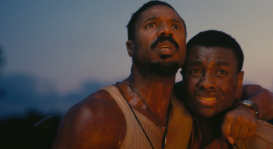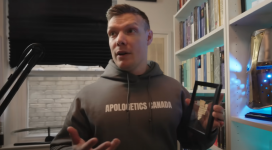NEW YORK CITY – In lieu of the upcoming November presidential elections, the National Council of Churches USA teamed up with several other U.S. religious and grassroots leaders to “get out the vote” and make the publics’ voices heard in issues on poverty and economic justice.
The first major event took place in Columbia, S.C, during the presidential candidates’ forum and intensive planning session, Jan 30-31. Beginning with a day-long civic event sponsored by the Center for Community Change, attendees let the six presidential primary candidates hear their concerns through what was called “The People’s Agenda for Economic Justice: a Dialogue with American Families.”
Following the forum, nearly 500 people of nine different faith traditions attended an NCC-sponsored interfaith worship service at the Washington Street United Methodist Church. Honorary speaker Rev. Darrell Jackson then prepared the group for a faith-based strategy session for the next day.
"As people of faith the greatest question that we can ask ourselves is 'What does God require of us?'" asked the Rev. Jackson, the pastor of Bible Way Church of Atlas Road and a state legislator in South Carolina.
The answer, said Jackson, is found in the Old Testament scripture Micah 6:8 – Do justice, love mercy and walk humbly before God. In Jackson’s words, that means doing the right thing even if it will have political consequences.
"This is not a charge given to you by the government; in fact, this is the charge of a higher authority," said the Rev. Jackson.
The next day, about 130 religious and grassroots leaders from across the country mapped out a “plan of action” to overcome poverty and economic injustice.
State legislator and Pastor of Calvary Baptist Church in Chester, S.C., the
Rev. Joseph H. Neal who attended the strategic conference said poverty can be eliminated if the issue was placed as a top priority.
“There is enough wealth in America to do away with poverty if we choose to do so. All we choose to do is allow poverty to continue," said the Rev. Neal.
He also challenged the gathered leaders to let their voice heard, rather than “co-opt” the language of faith.
"All evil needs is silence and it wins the day," he said.
According to Rev. Neal, those of true faith do not need a “pie in the sky,” but rather someone who understands their immediate needs for food, healthcare, employment and housing.
“We have to find our voice and never, ever again let people define us. If we don't, people will die. People will suffer. It's our responsibility,” he said.
The Rev. Mary Louise Frenchman, minister to the Evangelical Lutheran Church, agreed, saying that the people of faith must walk in solidarity with the impoverished.
"What is your pain and what do you need?," not, "Are you saved?" "My faith demands that I listen to people, find out what their needs are and do something about it," said the Rev. Frenchman.
In addition, Rev. Frenchmen urged the people of faith to treat the impoverished with dignity and respect.
"I see the faith community as a bridge," she said. "We are here to walk without fear."
The National Council of Churches USA and the Center for Community Change organized the "Faith Mobilization To Overcome Poverty" session, which had participation from the following groups: Project Vote, the Association of Community Organizations for Reform Now (ACORN), the National Interfaith Committee for Worker Justice, Protestants for the Common Good, the
Presbyterian Church (USA), The Interfaith Alliance, U.S. Conference of Catholic Bishops, Alliance to End Hunger/Bread for the World, Call to Renewal, Unitarian Universalist Fellowship of Columbia, the Gamaliel Foundation, the United Church of Christ and the South Carolina Christian
Action Council along with local, regional and national leaders of churches, synagogues, mosques and temples.
As a follow up to the late January events, the NCC and several other faith-based groups plan for a March 2 meeting in Chicago.







